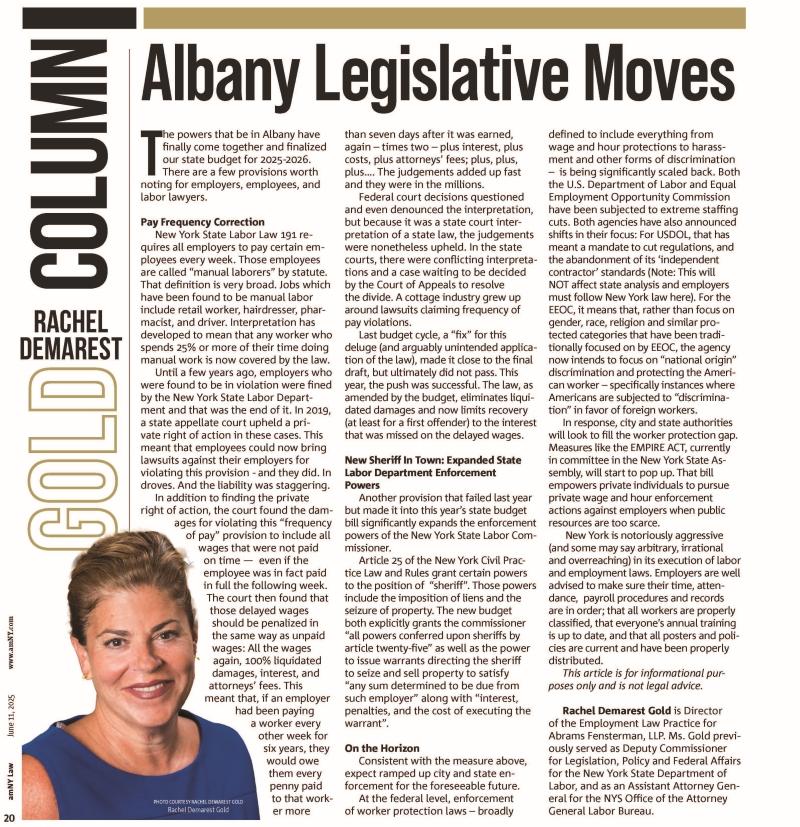By Carolyn Wolf
Op-Ed Contributor
August 26, 2007
Lake Success
If you would like more information about this topic or any other topic, contact Carolyn Reinach Wolf.
A BILL about the safety and mental health of college students, which is moving through the New York State Legislature after the tragedy last spring at Virginia Tech, is a step in the right direction, but more needs to be done. And as students across New York head back to campus, there’s no time to waste.
The legislation, introduced by Senator Kenneth LaValle, a Republican from Port Jefferson, was recently passed by the Senate and is awaiting approval in the Assembly. It would give security officers at 64 universities and community colleges in New York more enforcement authority, expand campus security laws and regulations and increase the number of mental health counselors.
This is good news, but university leaders would be wise to realize that their students’ safety may depend more on well-trained and intuitive faculty and staff members, reporting to a centralized coordinating office, than on a platoon of security guards.
The lessons from the Virginia Tech massacre are telling. Students, faculty members, health counselors, campus security officers and outside law enforcement officers knew the killer and that he appeared deeply disturbed. Additional security would not have made a difference, because there was no centralized coordinating office responsible for assessing the threat and responding to it. He was on everyone’s radar screen, but no one connected the dots.
What colleges need is an on-campus office of mental health with a dedicated official to ensure that the various campus and security disciplines have a defined reporting chain to identify potential threats from what may be deemed “students at risk.” Equally important is an oversight procedure, sensitive to confidentiality concerns, to follow those identified as potential threats to themselves or others.
This office would develop and run an information-sharing program that alerts administrators, faculty and staff members, campus counselors, residential life coordinators and students to psychiatric warning signs. It would also work with on- and off-campus mental health professionals and law enforcement officials to identify potential threats and see that students who present a danger are getting appropriate intervention.
In addition, because suicide is a leading cause of death among young people, this mental health office would be responsible for oversight of those students deemed at risk and development of an intervention plan. This office would also act as a liaison between on- and off-campus mental health professionals.
One of the major areas of concern in setting up a coordinating office is confidentiality requirements and parental notification. These issues, however, can be addressed by clarifying federal and state confidentiality laws, educating campus employees and parents about exceptions to these laws, and developing protocols to address those situations in which a choice must be made between liability for breach of confidentiality and liability for serious injury or death.
Fortunately, there is some latitude in how the money allocated in the LaValle bill can be spent, which means that a mental health coordinating office is certainly doable. But unfortunately, with the Assembly still undecided on the bill, there is a real danger that any efforts to strengthen campus safety may take forever or go nowhere.
Already, the president of the New York State University Police Officers Union has balked at the bill, saying that it doesn’t provide enough money to hire more qualified officers and offer them benefits appropriate to their responsibilities. And Democrats who control educational committees in the Assembly are at odds with Mr. LaValle over the timeline of putting security measures in place.
The Virginia Tech massacre created a soul-searching review of how we protect our children on campus. Thanks to the LaValle bill, we have the money to improve security; now we need to match it with innovation on campus that ensures that all the different individuals involved in campus life are communicating with one another.
The Assembly should join the Senate in passing this bill and strengthen it by calling for a campus mental health office that can identify and intervene with students at risk while coordinating with others to see that these students get the help they require. By carrying out this far more comprehensive response on university and college campuses, we can create a national model that can be replicated across the country.
Carolyn Reinach Wolf, a lawyer, is the founder of a consulting firm that specializes in mental health issues on college campuses.
Copyright 2007 The New York Times Company





